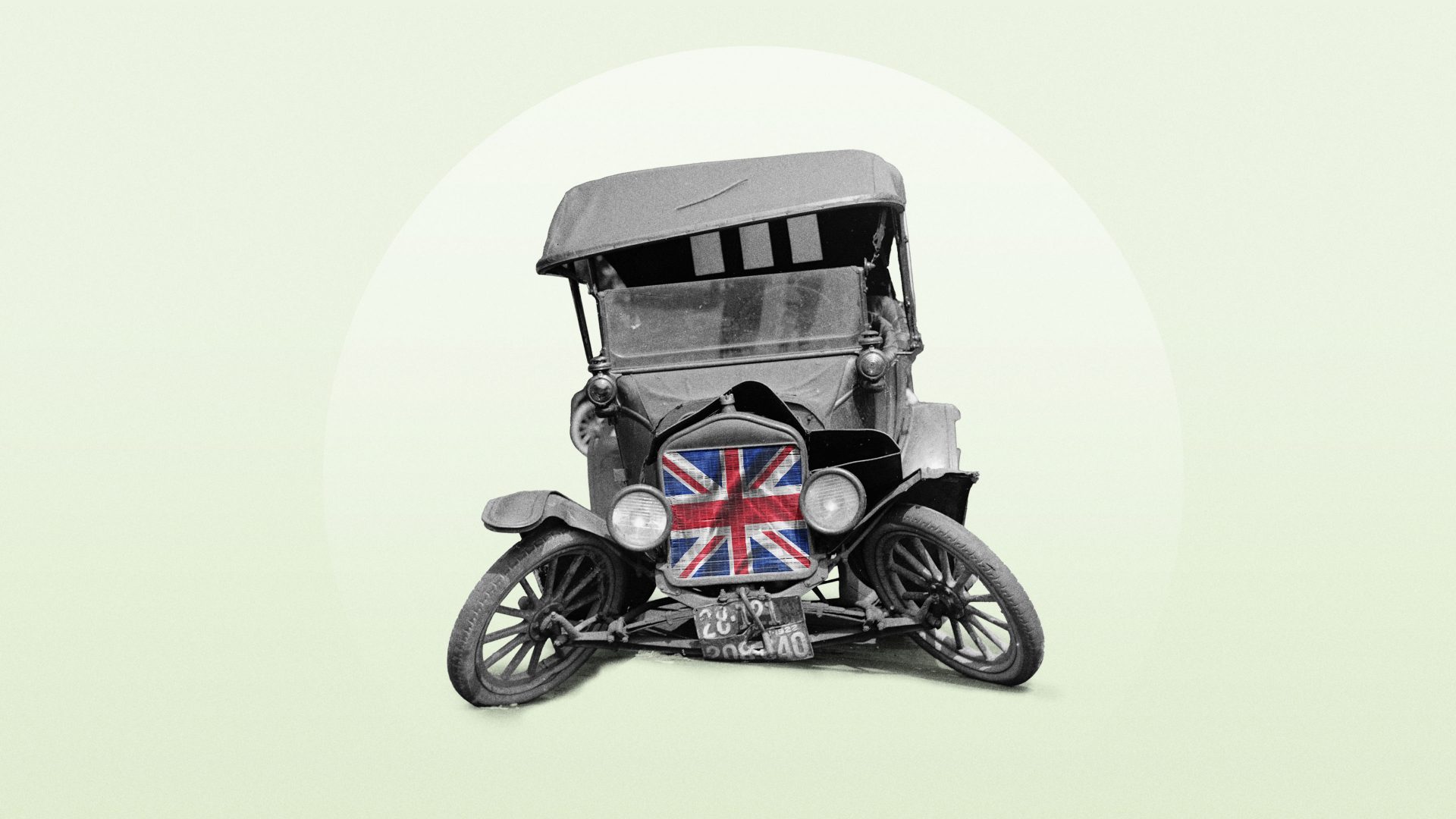- Joined
- Aug 14, 2016
- Messages
- 4,709
- Location
- leicestershire
- Car
- R230 SL500 in teal blue, R231 SL500 in black. (Vauxhall insignia diesel now sold) Black Ford Mondeo
Ah, their swan song......
Follow along with the video below to see how to install our site as a web app on your home screen.
Note: This feature may not be available in some browsers.
Ah, their swan song......
A slightly different proposition I'd argue, not least because it's never been a major sector for European employment. It employs around 1.2million people globally, but mostly in leaf growing which occurs outside Europe.
By contrast, the automotive industry employs around 13million people throughout the EU - roughly 7% of all employment - and circa 800k in the UK. The social consequences of that employment disappearing by ceding it to China shouldn't be overlooked.
There’s always the option of a low mileage immaculate earlier generation C Class.We have had small cars as a 2nd car in the household and I've always enjoyed driving them.
What a shame then that emissions regulations are rapidly reducing the choice. The Fiesta, VW UP, Audi A1 and Audi Q2 have already gone to mention just a few. MB are even dropping the A class. If I wanted to replace my C class with a premium smaller car in retirement there really isn't going to be much much to choose from.
Even the car manufacturers are becoming exasperated with effects of ill thought through policies that are forcing them to drop small cars.
Stop regulating us out of business and make a plan: Renault boss attacks politicians | Auto Express
Another view point cites the shame of the manufacturers to meet those regulations affordably. Despite warnings from the 1960s (which included suggestions of alternatives that could contain NOx emissions) the industry put all its eggs in the basket (case) called diesel. Then took petrol engines down the same road.What a shame then that emissions regulations are rapidly reducing the choice. The Fiesta, VW UP, Audi A1 and Audi Q2 have already gone to mention just a few. MB are even dropping the A class. If I wanted to replace my C class with a premium smaller car in retirement there really isn't going to be much much to choose from.
Yes, a massive cost saving for the consumer. Affordable, clean motoring for all.A slightly different proposition I'd argue, not least because it's never been a major sector for European employment. It employs around 1.2million people globally, but mostly in leaf growing which occurs outside Europe.
By contrast, the automotive industry employs around 13million people throughout the EU - roughly 7% of all employment - and circa 800k in the UK. The social consequences of that employment disappearing by ceding it to China shouldn't be overlooked.

A slightly different proposition I'd argue, not least because it's never been a major sector for European employment. It employs around 1.2million people globally, but mostly in leaf growing which occurs outside Europe.
By contrast, the automotive industry employs around 13million people throughout the EU - roughly 7% of all employment - and circa 800k in the UK. The social consequences of that employment disappearing by ceding it to China shouldn't be overlooked.
Slightly more complicated that that.Once it's gone it's incredibly hard to get it back.
Never mind. We'll lose all the jobs and the tax revenues but we'll all get carbon-neutral stickers.
The rest of the world must be rolling around laughing.

The driver of the collapse of those industries in the UK wasn't external legislation though, it was myopic / incompetent management and lack of investment in product and plant/people (the same things that killed the British volume car makers).No different to what’s happened to the motorcycle and Tech industries “within our lifetimes.”
Interesting view.The driver of the collapse of those industries in the UK wasn't external legislation though, it was myopic / incompetent management and lack of investment in product and plant/people (the same things that killed the British volume car makers).
Interestingly, the motorcycle industry in Europe has had a huge resurgence over the last couple of decades proving the old adage that if you offer the consumer the product(s) they want at what they consider to be a fair price, they'll buy. But with the exception of Triumph (funded by Bloor) and Piaggio, it has relied upon BMW and VAG to achieve that, the former with their own brand and the latter with Ducati.
The driver of the collapse of those industries in the UK wasn't external legislation though, it was myopic / incompetent management and lack of investment in product and plant/people (the same things that killed the British volume car makers)....
 cleantechnica.com
cleantechnica.com


 www.theneweuropean.co.uk
www.theneweuropean.co.uk
With the (spurious) exception of Brexit, those are exactly what I said: myopic / incompetent management, and failure to innovate (invest) in product / plant.Other views also available
With the (spurious) exception of Brexit, those are exactly what I said: myopic / incompetent management, and failure to innovate (invest) in product / plant.
The general case was that the European manufacturers failed to innovate / invest in manufacturing the products the consumers wanted in the 1960's / 1970's, while the Japanese (especially) did. Similar story in America. Nothing to do with legislation.What's your explanation of the collapse of the European and American motorcycle manufacture?
(2.5 million units sold a year in Europe, more than three quarters of which are manufactured in Asia)
Some very very poor countries on that list. What a future to look forward to.Apart from the other 110 countries that have agreed to the same carbon neutral targets of course....and the eight (admittedly generally small) counties that have already met that goal or are indeed carbon negative.
- Bhutan.
- Suriname.
- Panama. ...
- Guyana. ...
- Gabon. ...
- Niue. ...
- Comoros. ...
- Madagascar.
An old adage I subscribe to is that a company's management (generally) gets the industrial relations it deserves.I was referring to the fact that the workforce were not without blame, either....
An old adage I subscribe to is that a company's management (generally) gets the industrial relations it deserves.
Back in the 1960's and 1970's it wasn't unusual for management in British car plants to cynically take actions that resulted in walkouts by the workforce so that they could stop lines in order to rectify supply and manufacturing issues without having to pay the workforce to be idle. And then they wondered why the workforce became increasingly militant?
So you think that salary levels, employee taxation, social security payments, health and safety regulations, planning restrictions, trade union rights, the Government's technical education system, development incentives and corporation tax rates weren't factors?The general case was that the European manufacturers failed to innovate / invest in manufacturing the products the consumers wanted in the 1960's / 1970's, while the Japanese (especially) did. Similar story in America. Nothing to do with legislation.
No, I don’t. And I didn’t say that they don’t.So you think that salary levels, employee taxation, social security payments, health and safety regulations, planning restrictions, trade union rights, the Government's technical education system, development incentives and corporation tax rates weren't factors?
We use essential cookies to make this site work, and optional cookies to enhance your experience.
